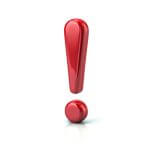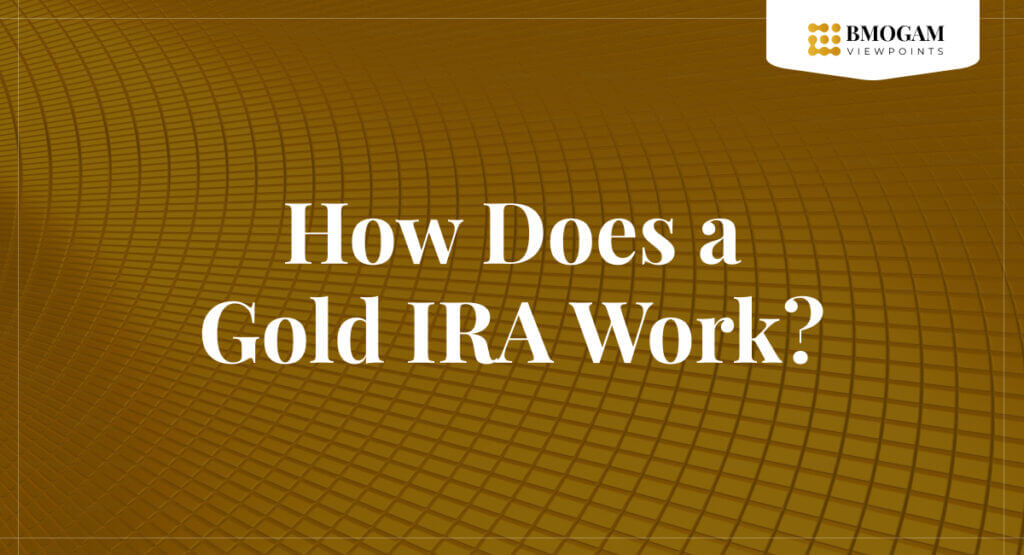Disclaimer: We are reader supported. We may be compensated from the links in this post, if you use products or services based on our expert recommendations. Please read our Advertising Disclosure.
Many investors choose to invest in gold and other precious metals. Conventional wisdom revolves around the fact that gold often acts as a hedge when it comes to inflation.
It is also a far less volatile investment when compared to others such as bonds and stocks.
An IRA, which stands for Individual Retirement is one of the investment accounts that provide tax advantages for people that use them to save for their retirements.
A Gold IRA is one of the self-directed IRAs that allow for tax advantages for investors and lets them invest in precious metals such as silver and gold.
Before we get started:
We understand how difficult it is to pick a company that you can trust with your hard earned savings. That's why we create informative and useful information to give you as much knowledge as possible to make the right decision.

We created a list of our highest recommended investment companies, to make comparing and choosing the company best suited to your needs as easy as possible.
Or...
Get a FREE Gold Investing Kit from our #1 recommendation, by clicking the button below:
Protect Your Wealth & Get Huge Tax Savings!
What is a Gold IRA?
When it comes to a Roth or traditional IRA (individual retirement account), you will be investing your savings from bonds, mutual funds, stocks, or other types of securities. With a gold IRA (which can be Roth or traditional), the account has to be self-directed.
These accounts hold precious metals in bars, bullion, or coins.

The other types of precious metals that you can own in a gold IRA include palladium, platinum, and silver. When considering IRA disbursements, taxes, and contributions, gold IRAs follow the same procedures and rules as other IRAs.
Account holders of gold IRAs can also invest in other types of gold-related investments known as "paper assets".
These often include ETFs (exchange-traded funds) and stocks in precious metal mutual funds, precious metal commodity futures, or gold mining companies.
However, this is not common, since most gold IRAs consist strictly of physical precious metal investments.
Different Types of Gold IRAs
Traditional Gold IRAs work in a similar way to traditional IRAs that typically hold paper assets. It is a type of retirement tax-deferred savings account.
This will mean that any money that goes into this account is from pretax contributions, which means you won't be liable for paying tax on the money until you decide to withdraw them.
There is a limitation set on the amount an investor is permitted to contribute to the account every year. However, these contribution limits have been known to change from one year to the next.
The Roth gold IRA also works like other types of Roth IRAs, which means the contributions will be taxed initially and not when they are withdrawn.
The aim of saving in this way is to allow the money to increase over the years in a tax-advantaged way.
When you are ready to start using the funds, you won't have to pay any tax on the initial contributions that you withdraw.
Simplified Employee Pension (SEP) Gold IRA is another option. This is only available to self-employed individuals and people that own businesses.
It works similarly to traditional IRAs, which means your contributions won't be taxed initially. You will pay taxes when you decide to withdraw the money, which usually occurs during your retirement.
The main difference with a SEP IRA is that contribution limits tend to be higher, which may allow you to save even more during your working years.
Why Put Gold in Your IRA?
Individual Retirement Accounts (IRA) protect your retirement as well as your family's financial security.
These special accounts allow you to set aside tax protected savings that you can use in the future.
With these long term accounts it's important to allocate a significant portion to assets that are solid and reliable, so you have a secure and worry-free retirement.

You can have cash in an IRA, but that is devaluing at a rapid pace and inflation is out of control.
You need an asset that's dependable, retains it's value, and even increases in value over time, and there is no better asset for this than gold.
With the world's economy struggling through lockdowns, shortages, wars, and inflation, uncertainty has never been higher and investors are protecting themselves by placing physical gold in IRA's.
A gold IRA investment prospers from these crisis that negatively affect most other assets.
Risk is knowing the economic dangers and doing nothing to protect yourself and your family.
Safety is knowing the economic dangers and taking action to protect your financial future, and this easy to do with a Gold IRA.
How To Fund Your Account
Precious metal retirement accounts start with transferring funds from an existing retirement qualified plan (such as annuities, Thrift Savings Plans, a 401(k), a 457, a 403(b), or a 401(a)) to a self-directed IRAs custodian account (which is in your name).
Your gold brokers won't be holding your precious metals or your funds, since you will be the only one that has control over the account.
If you are using cash to fund your account, the self-directed custodian can accept a wire or a check. The way the account is taxed will depend on whether you have chosen a Roth (after-tax) or Traditional (pre-tax) IRA account.
One limitation when it comes to funding the IRA account is that any gold bullion or coins that you already own can't be used to legally fund the account. One of the reasons is that the U.S. government only permits certain bullion and coins to be legally held in IRAs.
Keep in mind that achieving diversification for your portfolio means that you have to diversify a percentage of your overall wealth (not your entire wealth) into silver and gold.
One of the best ways to ensure you eliminate any risks of making errors during the transaction processes is to work with a reliable and well-known gold IRA firm so that they can give you advice and guide you professionally through each step of the process.
What Types of Precious Metals can I Hold in a Gold IRA Account?
Gold IRAs can be used for any IRA-approved precious metal. The four precious metal types that you are permitted to buy and hold in a gold IRA include:
Not all types of gold investments are permitted for use in an IRA. The basic rules for IRAs are that you are not allowed to own collectibles and most precious metals are regarded as collectibles, even when the investments are in coins or bullion.
Fortunately, there is an exception to this rule for palladium, platinum, silver, and gold when it's held in a certain form.
Bullion coins, legally tendered are permitted by IRAs. The fineness level of the coins must be 99.5%. The American Eagle coins qualify and a few other coins issued by the U.S. Canadian Maple Leafs can also be owned in an IRA.
But British Sovereign coins and South African Krugerrands don't match the exception. Some of the older coins in the U.S. like the Double Eagles also won't qualify.
Rounds and bullion bars of silver and gold are also permitted in an IRA, provided the fineness level is 99.9%. This typically means the bullion or rounds need to come from a COMEX or NYMEX-approved refinery or the national government mint.
Storage Options for Precious Metals
Investors have to store their gold for their IRA with an authorized and regulated depository.
Since precious metals are targets of fraud or theft, there are only a select number of depository institutions that the IRS has approved for guarding and holding precious metal inventory.
When storing your precious metals there is the option to have them stored separately or with other investors' investments. You can also choose from one of the approved depositories in the U.S., or an overseas depository.
Co-mingled storage is another option to store precious metals or gold in your Gold IRA. This is a vault storage type that involves a service provider that holds precious metals such as gold from several clients in one big room.
This is a more affordable option to go for when it comes to storage and more straightforward when it comes to the service providers.
With this option, your service provider will only require copies of updated inventory sheets that stipulate the holding quality for each client. Co-mingled storage is by far the more common method of storage used by many of the vaulting companies.
If you have concerns about your investments getting mixed up with other people's, you can request segregated storage.
This will give you safe access to a reliable deposit-box service where your gold or precious metals will be separated from other people's investments.
The main advantage of this storage option is the peace of mind and security of knowing your valuables are stored in a dedicated safety-deposit box.
You can also be sure that your investment won't mysteriously disappear due to compromised security or bankruptcy. However, personal safety deposit boxes will come at a price.
Regardless of the vaulting type that you choose, all the vaulting companies are required to stipulate in a contract the type of service you will be receiving and the costs involved by law. You are advised to read over the contract before you sign.
When Will I be Allowed to Withdraw from My Gold IRA?
The purpose of an IRA is to save towards your retirement. When funding an IRA to save for retirement, the government grants you tax benefits. But the government has also placed restrictions when it comes to how you will be able to use the money in your Gold IRA.
With traditional IRAs, you won't be able to withdraw from your account before the age of 59 ½. Once you have reached retirement age, every withdrawal is counted as "income" and will be taxed accordingly.
If you make any withdrawals before you reach retirement age, you will be liable for an extra 10% penalty on the funds you have withdrawn.
Traditional IRAs will also have a required minimum distribution when you are over the age of 70 ½. These are rules that will force you into withdrawing the minimum amount from the IRA every year according to a formula.
There are penalties for anyone that has failed to make the minimum withdrawal.
With the Roth IRAs you are permitted to withdraw the funds you have contributed to your IRA whenever you like without penalties. You will be allowed to withdraw earnings and contributions without any restrictions as soon as you have turned 59 ½.
In either case, you won't be liable for taxes on any withdrawal. However, you will be liable to pay income tax along with a 10% penalty if you withdraw the funds before retirement age.
There are a few exceptions when it comes to these rules.
For instance, you might be allowed to make an early withdrawal (penalty-free) when you are buying a home for the first time, educational expenses that qualify, medical expenses that qualify, or as a periodic-payment plan for an early retiree.
What are the Benefits of Investing in Gold?
A Gold IRA is one of the best ways to diversify and safeguard a portfolio. During some of the most extreme downturns in the market, gold has always gone in an opposite direction when compared to stocks.
During times that were more optimistic, stocks and gold tended to move together in tandem. So gold is regarded as a hedge when it comes to a financial crisis that can occur in the markets and an added layer of protection against inflation.
In most cases, gold's value increases when the dollar value goes down. Even though equity investments may potentially be enough to provide a hedge when it comes to inflation, fixed-income securities such as bonds might not do so well.
Fixed-income investments are usually safe when it comes to retirement savings. But if you are worried about how inflation might impact your savings, investments in precious metals may be the solution for you.
Conclusion
There are several benefits when it comes to Gold IRAs. Some include the tax benefits linked to all types of Individual Retirement Accounts.
Other benefits have to do with the properties of precious metals like gold as investments and how easy it is to store gold in an IRA.
However, it is always important to remember that every investment is associated with some risk.
New readers to this website often ask us about how they can get started with a precious metals IRA and we always recommend the same advice.
While these accounts can be very helpful to your financial well-being, there are some complexities with setting these up. That is why we created a list of the very best companies in this industry to work with.
We highly recommend you reach out to them to get a Free Investing Guide that is packed with information, to see if a gold IRA is right for you.
You can get a Free Gold Investors Guide from our top gold and precious metals company recommendation by clicking the link above or you can read our article of the top companies we reviewed this year:
>> CLICK HERE to read our list of the top gold IRA companies. <<

I started BMOGAM Viewpoints as a way to compile all my views on investing in one place. I own my home, have some real estate, and own a few stocks like most people, but what really drives my interest in investing is I have a strong love of precious metals, especially gold.



